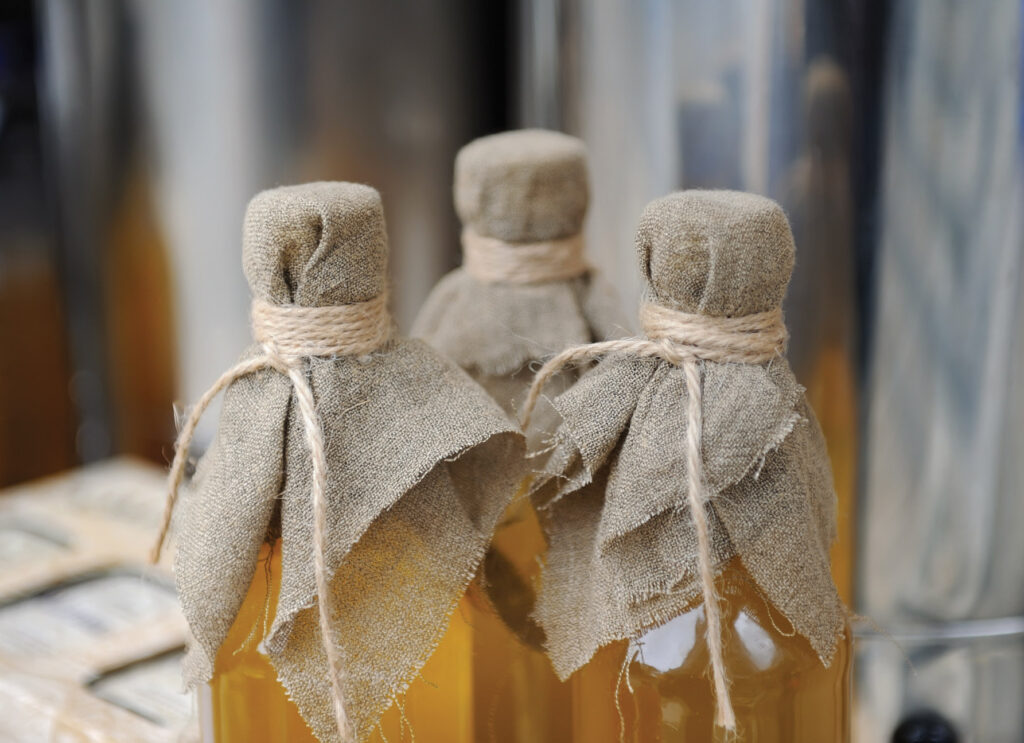Advertisement
Ancient Mead is the Latest Buzz
What’s old is new again

It’s the world’s oldest alcoholic drink, yet to most people mead is a brand-new taste experience. At its most basic, mead is made with honey and water, but its variations are endless, as makers can add fruits, berries, spices, and herbs to the mix. Long believed to have health benefits thanks to the antioxidant effects of honey, mead makers are currently discovering the power of the eco-foodie dollar and experiencing a huge hike in the drink’s popularity.
According to Market Watch magazine, mead sales are up 130 percent year over year, with the American Mead Makers Association declaring that mead is the smallest but fastest growing segment of the entire US alcohol business.
Tips from the sommelier
“Personally I approach mead like the traditional drink that it is and always envision a bunch of knights sitting around in their armour getting tipsy!” says Mireille Sauve, sommelier and president of the Wine Umbrella.
“Try mead at the end of a meal with the cheese course; it’s great with cheeses like brie and Camembert and good with nuts and dried fruits. It’s one of those things you want to sip around a fireplace while you tell stories.”
Traditionally, what happens stateside happens right here a few years later, and mead maker Judie Barta of Meadow Vista Honey Wines agrees: “In the past five years, we’ve really noticed people looking for alternatives to grape wine. I’m an RMT [registered massage therapist], and at my winery we’re all about health and wellness food and beverages.
“One of the key things about mead in the wellness world is that it doesn’t contain tannins, and for those who are sensitive to sugar, it’s a great alternative as we don’t use any—it’s all honey.”
For many people sensitive to wine, often it’s the tannins, not the sulphites, that are the issue. That dry taste in your mouth after you drink tea or red wine is due to tannins dehydrating your mucous membranes.
Did you know?
They used to drink mead out of a horn, so there is zero etiquette attached! Be creative and try whatever tickles your fancy. Try mead at room temperature, fresh from the fridge, or even spiked with rum as a toddy.
But even if you’re a dedicated red wine drinker, Barta thinks there might be a mead out there for you to try, recalling a recent visitor to the winery who drank Syrah and was won over by Meadow Vista’s Rubus made with local ripe blackberries.
Scientists in Sweden conducting research into antibiotic resistance launched an Indiegogo campaign to make their own mead, Honey Hunter’s Elixir, believing that the lactic acid bacteria in honey “possess unique antimicrobial properties, which in turn are the key to using them as a potential alternative to antibiotics.”
Tip
Win at a brown-bag drinks party by taking a bottle of mead—no one will ever guess what it is.
So, tannin- and sugar-free, plus potentially an alternative to using antibiotics, mead also has environmental benefits thanks to using honeybees—and what benefits the bees, benefits us all.
“We’re trying to share the idea of how important our pollinators are,” says Barta. “Each spring we hand out seeds for people to plant for bee gardens, and all our tasting fees at the winery go into our Pollinator Project helping to support bees in our community.”
For first-time mead drinkers, the sky is the limit: there are sparkling meads, spiced meads, meads of every kind. “You can get a great summer sipper that’s elegant, clean, and refreshing as well as something that goes beautifully with food,” says Barta. “We’ve come a long way from that image of some dusty mead in a beekeeper’s basement!”
Tip
Look for clean, fresh flavours. Musky meads are no good—that mossy aroma is great for Scotch but not for mead.





